Residency Program in Pediatrics
Program overview
The NUSOM Pediatrics Residency is a 3-year Program aiming to train medical doctors to become general pediatricians.
This Program will educate skilled pediatricians, according to the six ACGME (Accreditation Council for Graduate Medical Education) core competencies and the related Pediatrics Milestone Project.
Therefore, this Program will provide the residents with the foundation competencies to be ready to practice pediatrics in different clinical settings (in hospital and/or as general practitioner) or to continue their post-graduate medical training in pediatric sub-specialties (e.g. Pediatrics Clinical Fellowships). Additionally, this Program will offer the residents also the opportunity to do clinical and translational research, in order to educate physicians that will be able to undertake the academic career.
During year-1 and year-2, the resident will receive high-quality clinical training in different and specialized pediatric departments, in addition to several outpatient longitudinal experiences. During year-3, the resident will be also allowed to focus own training and curriculum on specific areas of clinical and/or research interest.
This Program reflects the NUSOM commitment to the development of physician-scholars, who are comfortable with evidence-based patient care and medical practice, integrating the clinical work at bedside with the research of pathological and molecular mechanisms of diseases in the laboratory. All that is possible thanks to the academic and clinical integration between the University Medical Center (UMC) and NUSOM Facilities, in addition to the cooperation with several Pediatric Hospitals in Nur-Sultan and our strategic partnership with University of Pittsburgh medical Center (UPMC) and, in particular, with the Pittsburgh Children’s Hospital.
Learning outcomes
The Program Learning Outcomes (LOs) are consistent with the ACGME Pediatric Milestone Project, which provides a framework for the transversal and longitudinal assessment of the Resident’s progression in all key dimensions, skills and competencies required in Pediatrics and its subspecialties.
By the end of the Pediatrics Residency Program, the residents are required to achieve the graduation target in the majority of the ACGME Milestones for Pediatrics, as follows:
1. Patient Care:
- Gathering essential and accurate information about the patient;
- Organizing and prioritizing responsibilities to provide patient care that is safe, effective, and efficient;
- Providing transfer of care that ensures seamless transitions;
- Making informed diagnostic and therapeutic decisions, resulting in optimal clinical judgment;
- Developing and carrying out medical management plans.
2. Medical Knowledge:
- Critically evaluating and applying current medical information and scientific evidence for patient care;
3. Professionalism:
- Demonstrating humanism, compassion, integrity, and respect for others based on the characteristics of an empathetic practitioner (Humanism);
- Demonstrating a sense of duty and accountability to patients, society and the profession (Professionalization);
- Achieving high standards of ethical behavior, which includes conserving appropriate professional boundaries (Professional Conduct);
- Developing the ability to use self-awareness of knowledge, skills, and emotional limitations to engage in appropriate help-seeking behaviors;
- Demonstrating trustworthiness that makes colleagues feel secure when one is responsible for the care of patients;
- Recognizing that ambiguity is part of clinical medicine and respond by utilizing appropriate resources in dealing with uncertainty.
4. Practice-based Learning and Improvement:
- Identifying strengths, deficiencies, and limits in one’s knowledge and expertise;
- Identifying and performing appropriate learning activities to guide personal and professional development;
- Systematically analyzing practice by using quality improvement methods with the goal of practice improvement;
- Incorporating formative evaluation/feedback into daily practice.
5. System-based Practice:
- Coordinating patient care within the health system relevant to their clinical specialty;
- Advocating for quality patient care and optimal care systems;
- Working in inter-professional and multi-disciplinary teams to enhance patient safety and improve patient care quality.
6. Interpersonal and Communication Skills:
- Communicating effectively with patients and families;
- Demonstrating the insight and understanding into emotion and human response to emotion that allows one to appropriately develop and manage human interactions.
Clinical rotation sites
- UMC National Research Center for Mother and Child Health
- UMC Children’s Rehabilitation Center
- UMC Republican Diagnostic Center
- Children’s City Hospital #2
- Children’s Clinic for Infectious Diseases #2
- Cardiac Surgery Research Center
Program structure
PL-1 Year
The “Intern” year (year-1) focuses on the clinical experience with children affected with acute and chronic illnesses, who are admitted into several inpatient divisions of the Clinical Academic Department of Pediatrics, under the supervision of UMC Attending Physicians and/or NUSOM Faculty.
The residents will pass through a series of 8-week rotations in the following inpatient specialty divisions:
- General Pediatrics (including Pediatric Gastroenterology and Endocrinology, NRCMCH)
- Pediatric Rheumatology (NRCMCH)
- Neonatal Intensive Care Unit (NICU, NRCMHC)
- Pediatric Intensive Care Unit (PICU, NRCMHC)
- Pediatric Hematology (NRCMHC)
- Pediatric Neurology, Disabilities and Rehabilitation (NCRC)
PL-2 Year
The second year will be devoted to acquire additional clinical skills, develop more independence, and gain more experience in leadership and supervision. The clinical experience will be provided in both inpatient and outpatient services of general and specialist pediatrics.
These clinical skills will be developed through a series of 8-week rotations on inpatient departments (both general and subspecialty pediatric teams):
- Pediatric Neurology (NRCMCH)
- Neonatology and Delivery Room (NRCMCH)
- Pediatric Infectious Disease (extra-UMC hospital to be agreed)
- Pediatric Emergencies (extra-UMC hospital to be agreed)
- Pediatric Cardiology (National Research Cardiac Surgery Center, to be confirmed)
- Pediatric Oncology (NRCMCH)
Concomitantly, the Residents will have some longitudinal clinical experiences, to be defined through an individual schedule.
PL-3 Year
The year-3 will consist of elective rotations which will be agreed and tailored with the Program Director and Program Evaluation Committee, which will allow each Resident to shape own clinical training according to the areas of clinical and research interest. Therefore, in addition to specific and additional hospital experiences (to prepare the residents for a future specialist career and eventually to Clinical Fellowship Programs), other opportunities can be represented by community service opportunities (like rotations in either a rural practice or an urban locations) rather than specific project of clinical and translational research between the hospitals and the laboratory.




